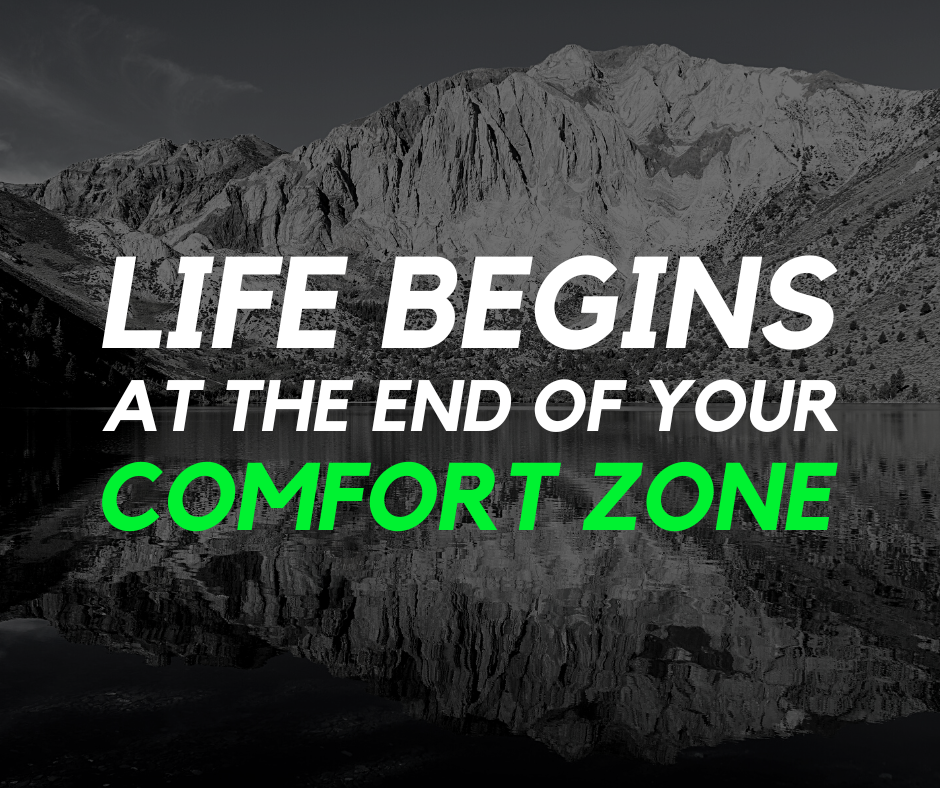Imagine yourself sitting in a cozy armchair by a fireplace on a cold winter evening, sipping a cup of hot cocoa, and reading a good book. You feel the warmth of the fire on your skin, the softness of the armchair cushions beneath you, and the comforting smell of the cocoa in your nostrils. Outside, the snow is falling softly, but you are snug and warm in your comfortable setting. You feel a sense of peace and contentment as you immerse yourself in your book, knowing that you have nowhere else to be and nothing else to do.
How comforting isn’t it? Just by the thought of it, mind & body is relaxed.
Now imagine yourself in a crowded elevator with strangers, and the elevator suddenly stops between floors. The air feels stuffy and hot, and you begin to feel claustrophobic as you realize that you are trapped in a confined space. You feel the tension rising as everyone begins to panic, and you start to worry about your safety and well-being.
That’s how sometimes life and reality feels like isn’t it?
We naturally seek comfort and security in life. We want to feel safe and protected, and our comfort zone is the place where we feel most at ease. It’s the place where we can relax and let our guard down.
Our comfort zone is made up of the things we’re familiar with and the things we’re good at. It’s the routines we have, the people we know, and the places we go. It’s the job we’ve had for years, the hobbies we enjoy, and the foods we like to eat.
But while our comfort zone might feel safe and familiar, it can also hold us back. When we stay in our comfort zone for too long, we can become complacent and stagnant. We might miss out on opportunities for growth and learning.
Stepping outside of our comfort zone can be scary, but it can also be incredibly rewarding. When we try new things, we challenge ourselves to grow and learn. We might discover new passions, develop new skills, or meet new people.
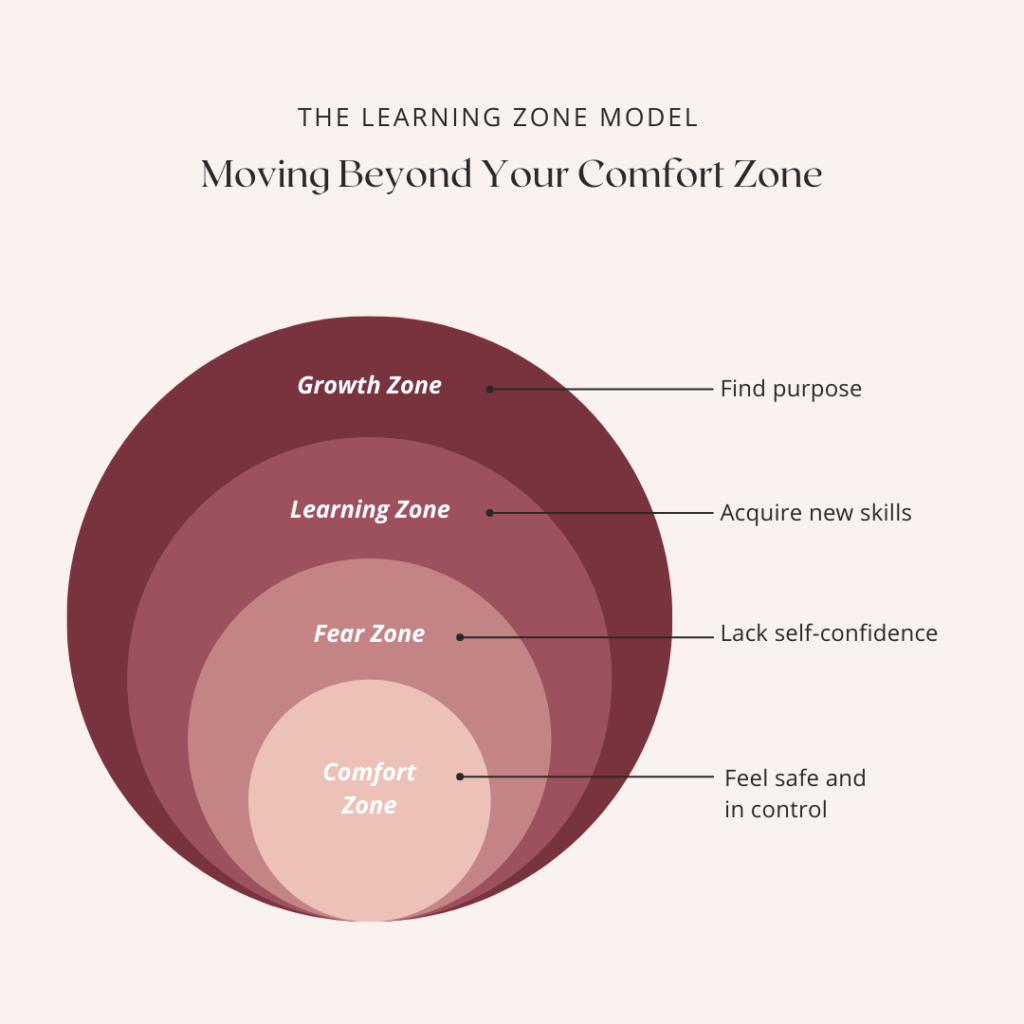
So, why do we love our comfort zones so much? I think it’s because they provide a sense of stability and predictability in an often unpredictable world. When we’re in our comfort zone, we know what to expect and we feel in control.
But it’s important to remember that growth and learning happen outside of our comfort zone. So, while it’s okay to enjoy the comfort of our routines and familiar surroundings, we should also be open to stepping outside of our comfort zone and trying new things.
What do you think about comfort zones? Do you enjoy stepping outside of your comfort zone, or do you prefer to stay within the familiar? Let me know your thoughts!
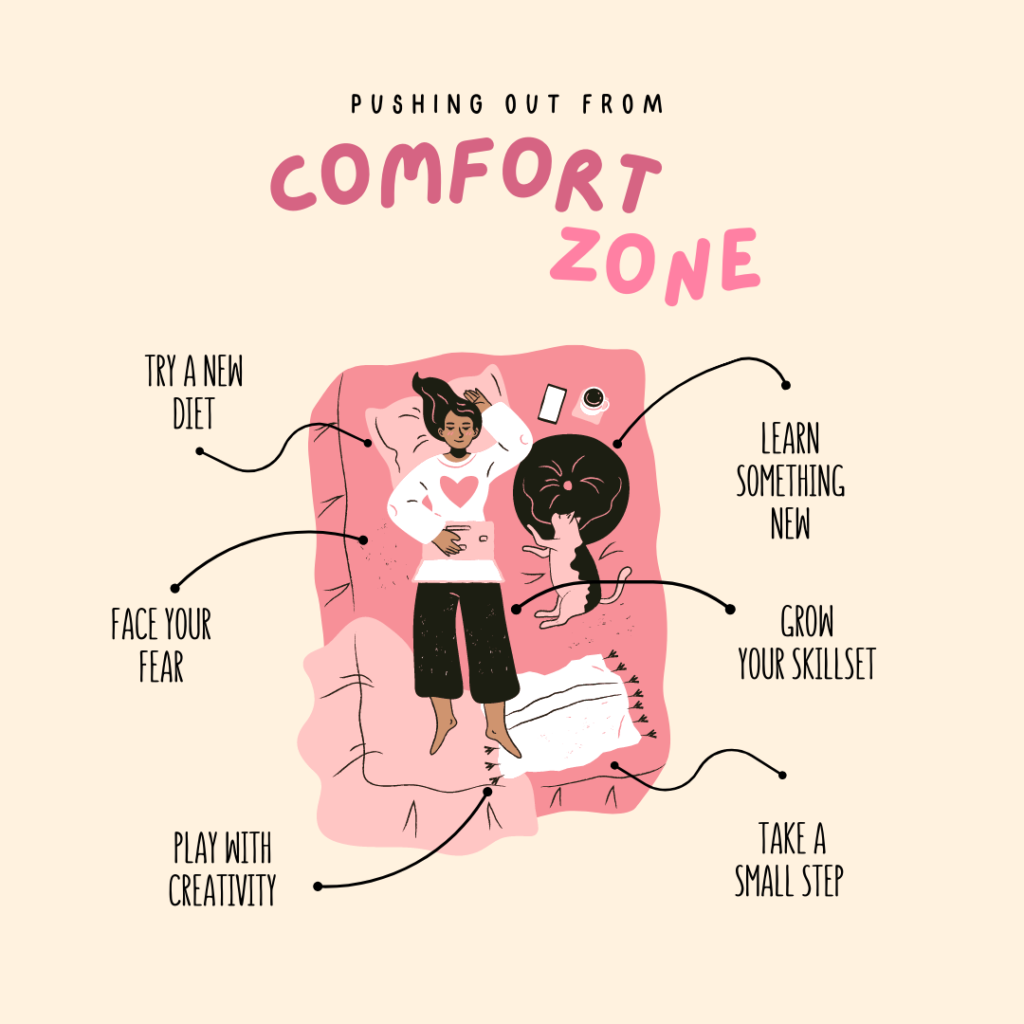
Stepping out of your comfort zone is often necessary for growth and success in various areas of life. If you want to achieve something great, you have to be willing to take risks and try new things. In this blog, I’ll be discussing why stepping out of your comfort zone is essential for achieving your goals and how to do it.
Firstly, let’s talk about why it’s important to step out of your comfort zone.
If we always stay within our comfort zone, we may never reach our full potential or achieve the things we truly desire.
For example, if you want to become rich, you may need to take some calculated risks such as investing in a business, developing a new product, or pursuing a new career path. But if you always stay in the same job or stick to the same old ways of doing things, you might never see the kind of financial success that you want.
Similarly, if you want to become fit and healthy, you may need to step out of your comfort zone by trying new exercises, adopting a healthier diet, and pushing yourself beyond your limits during workouts. It might be uncomfortable at first, but the rewards are worth it.
Improve your social skills: If you’re shy or introverted, it can be easy to stick to what’s comfortable and avoid social situations. However, if you want to improve your social skills and build new relationships, you need to step out of your comfort zone. This might mean attending networking events, joining social groups, or striking up conversations with strangers.
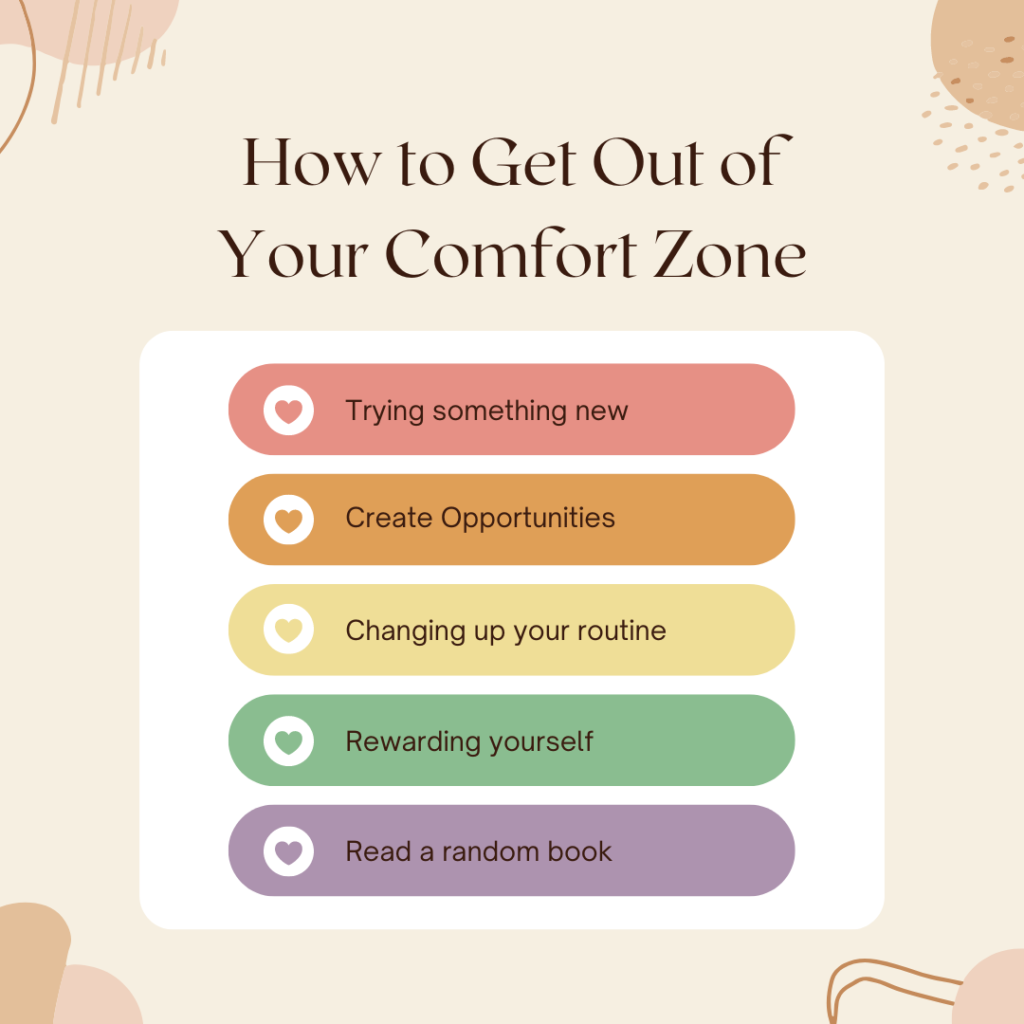
Learn a new language: Learning a new language can be challenging, but it’s a valuable skill that can open up new opportunities in your personal and professional life. To learn a new language, you need to step out of your comfort zone and immerse yourself in the language through classes, conversation practice, and exposure to the culture.
Overcome fears and phobias: Whether it’s a fear of heights, public speaking, or spiders, phobias can hold us back and limit our experiences. To overcome these fears, you need to step out of your comfort zone and face them head-on through exposure therapy or other treatments.
Travel to new places: Traveling to new destinations can be an enriching and transformative experience, but it also requires stepping out of your comfort zone. You’ll need to navigate unfamiliar cultures, languages, and customs, which can be daunting at first but ultimately rewarding.
Pursue creative endeavors: If you want to express yourself creatively through writing, painting, or other forms of art, you need to step out of your comfort zone and take risks with your work. This might mean sharing your creations with others, submitting them for publication or exhibition, or exploring new styles and techniques.
By challenging yourself to try new things, take risks, and push beyond your limits, you can achieve your goals and unlock your full potential. So don’t be afraid to step outside of your comfort zone and embrace new experiences and opportunities!
Now, let’s talk about how to step out of your comfort zone.
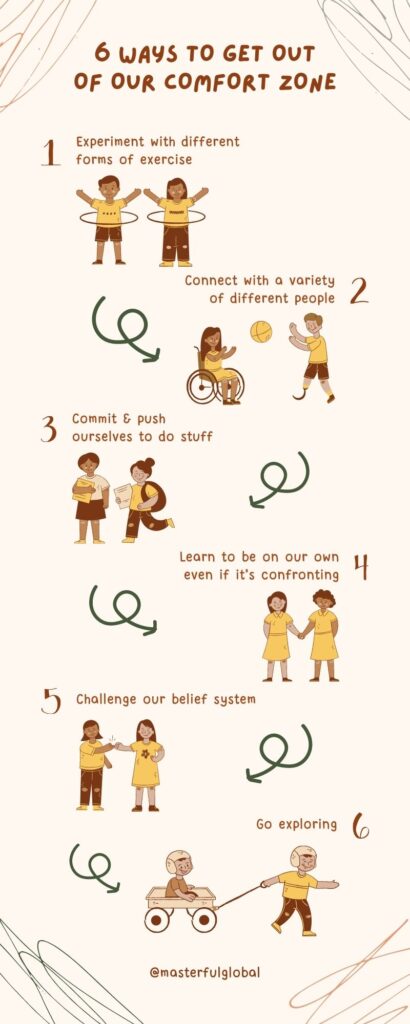
The first step is to identify your comfort zone and the areas in which you want to grow. It’s important to set realistic goals and break them down into smaller steps that you can work towards each day.
Next, try to do something new or different every day. It doesn’t have to be something big – it could be as simple as trying a new food or taking a different route to work. By doing something outside of your usual routine, you’re training your brain to be more flexible and adaptable.
Another way to step out of your comfort zone is to seek out new experiences and challenges. Take on new projects at work, join a new club or group, or try a new hobby. These experiences can help you learn new skills and expand your horizons.
Finally, it’s important to embrace failure as a part of the learning process. Stepping out of your comfort zone can be scary, and you may not always succeed on the first try. But each failure is an opportunity to learn and grow.
By identifying your comfort zone, setting realistic goals, trying new things, seeking out new experiences, and embracing failure, you can break out of your comfort zone and achieve the success you desire.
Remember, the greatest growth often happens outside of your comfort zone.
